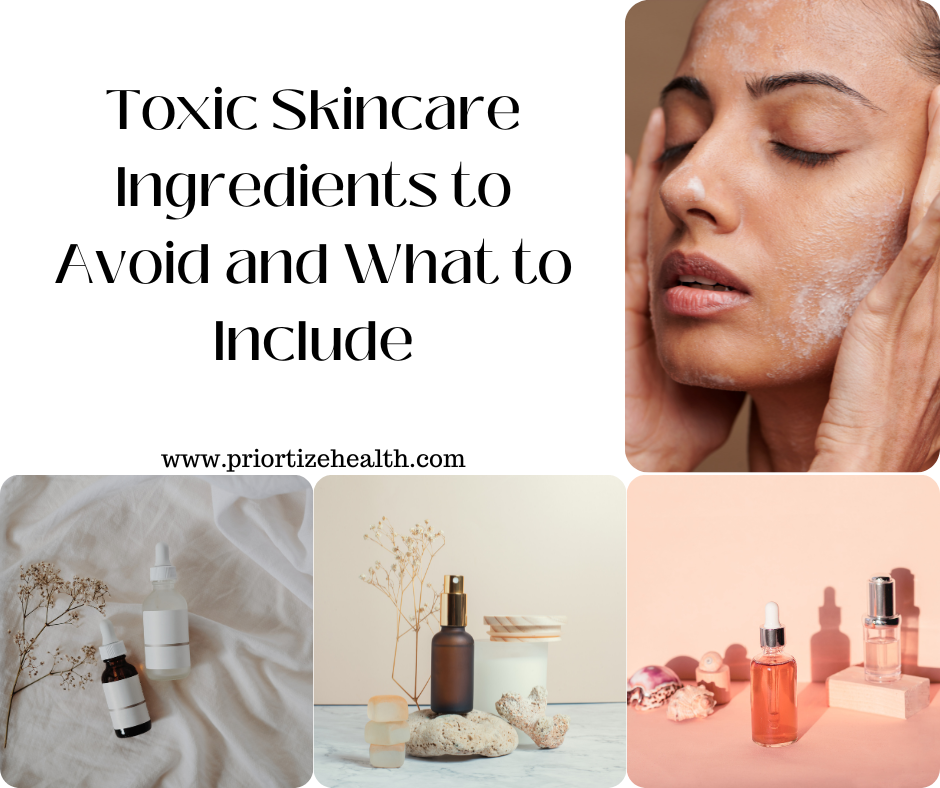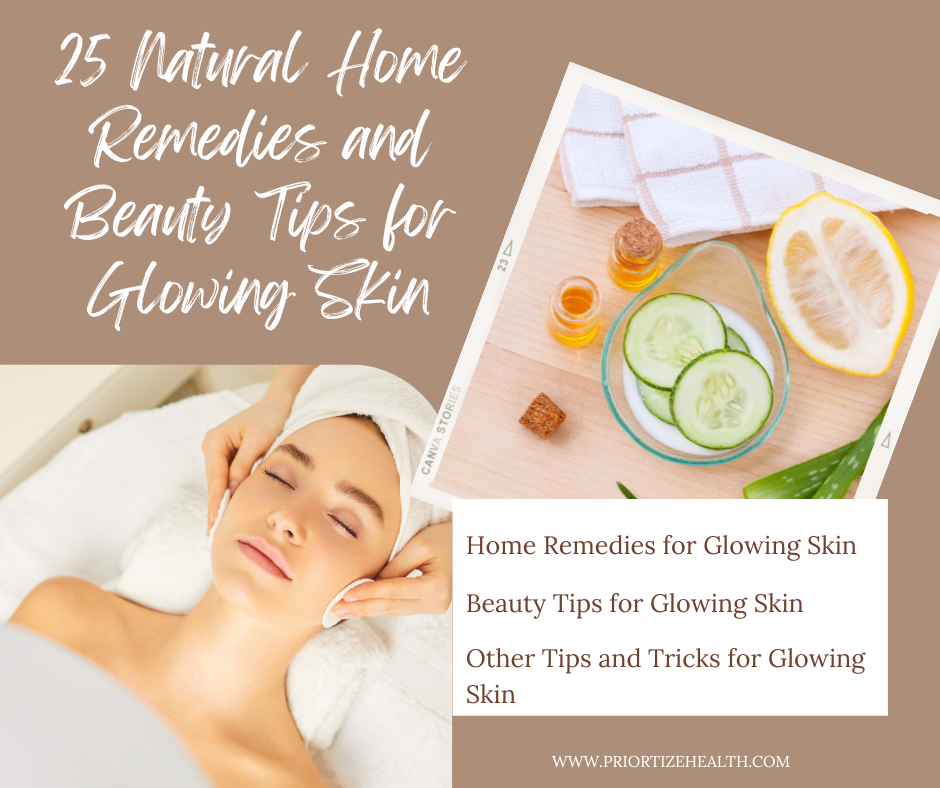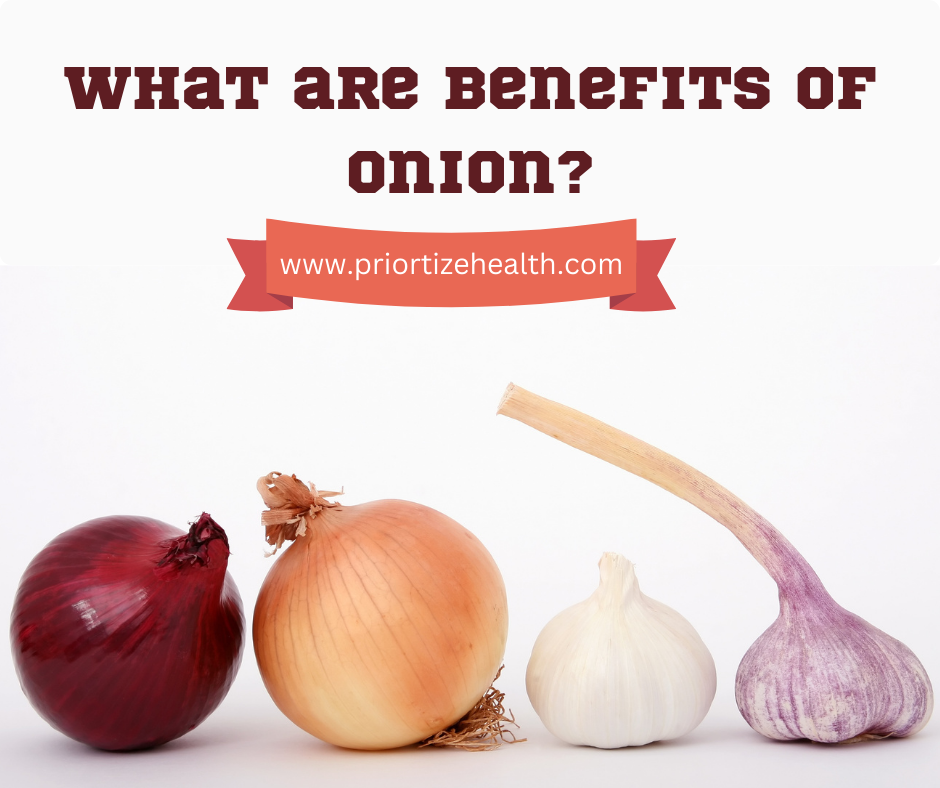
Toxic Skincare Ingredients to Avoid and What to Include
Taking care of our skin is essential not only for its appearance but also for our health. Our skin is the largest organ in our body. It serves as a barrier between our internal organs and the outside environment. The skin protects us from harmful substances. It regulates our body temperature and helps us to remove toxins.
Good skincare can help maintain the skin’s natural function. It keeps the skin healthy and functioning. When we neglect our skin, it can become dry, irritated. It can become more susceptible to infections and other skin conditions. This can influence our appearance as well as our health and wellbeing.
Furthermore, our skin can absorb the products we put on it. This includes any harmful chemicals they contain. Toxic skincare ingredients can enter our bloodstream and affect our health in various ways. It can vary from disrupting hormonal balance to increasing the risk of cancer. Thus, it’s crucial to pay attention to the products we use on our skin. We should choose safe and non-toxic options.
Skincare Products
The skincare products can contain beneficial ingredients that nourish and protect the skin. They can also contain harmful and toxic ingredients. Some common skincare ingredients that are beneficial include:
- Hyaluronic acid: This ingredient helps to keep moisture in the skin. This keeps it hydrated and plump.
- Vitamin C: This antioxidant ingredient helps to brighten the skin. It can protect skin from environmental damage.
- Niacinamide: This ingredient helps to reduce inflammation and redness in the skin. Thus, it is ideal for those with sensitive or acne-prone skin.
But there are also many harmful and toxic ingredients present in skincare products. Some of these ingredients include:
- Parabens: These preservatives are in many cases utilized in skincare items to prevent micro-organisms development. But they may lead to hormone disruption and increased risk of breast cancer.
- Phthalates: These chemicals are often found in fragrance. They can disrupt the endocrine system, leading to reproductive issues.
- Formaldehyde: This preservative can cause skin irritation. It is a human carcinogen.
- Sodium lauryl sulfate (SLS): This fixing is a surfactant that makes froth. It is present in many cleansing products. But it can be harsh on the skin and cause irritation and dryness.
- Retinyl palmitate: This form of vitamin A can cause skin irritation. It can increase the risk of skin cancer when exposed to sunlight.
t’s fundamental to know about these harmful ingredients. We ought to keep away from them whenever the situation allows. Instead, opt for natural and organic skincare products. They contain safe and beneficial ingredients.
Toxic Skincare Ingredients to Avoid
The most well-known toxic ingredients found in skincare products, including:
1. Parabens
Parabens are synthetic preservatives. People use them in many skincare products like lotions, moisturizers and cleansers. They help to expand the timeframe of realistic usability of the item and prevent bacterial development. But research has shown that parabens can be harmful and toxic to the skin.
Parabens are a copy to the chemical estrogen. It can upset the endocrine framework and impede the body’s regular hormonal equilibrium. This can lead to a scope of medical problems.. It includes breast cancer, reproductive issues and developmental disorders.
Additionally, parabens can cause skin irritation, especially for those with sensitive skin. It can also exacerbate existing skin conditions such as rosacea, eczema, and psoriasis. In some cases, parabens can even cause allergic reactions and contact dermatitis.
Parabens are generally considered safe in small doses. They can accumulate in the body over time. An exposure to many sources of parabens can increase the risk of adverse health effects. Thus, it’s best to avoid parabens whenever possible. Opt for natural and organic skincare products that use alternative preservatives.
2. Phthalates
Phthalates are a group of synthetic chemicals. They are often added to skincare and other personal care products to improve their texture and fragrance. But phthalates are toxic and harmful to the skin.
Phthalates are endocrine disruptors. They can interfere with the body’s natural hormonal balance. This can lead to a range of health issues like reproductive problems, birth defects and developmental disorders.
Additionally, phthalates can cause skin irritation and allergic reactions. They can also worsen existing skin conditions such as eczema, psoriasis, and rosacea. Phthalates can also penetrate the skin and enter the bloodstream. They can accumulate in the body and cause harm over time.
Some countries have banned the use of phthalates in certain products. Many people still use it in many skincare and personal care products. Thus, it’s essential to read product labels and choose products that are phthalate-free. Opting for natural and organic skincare products is a good way to avoid phthalates and other harmful chemicals.
3. Sodium lauryl sulfate (SLS)
Sodium lauryl sulfate (SLS) is a common surfactant. People use it in many skincare products, such as cleansers and shampoos. It helps to create foam and remove dirt and oil from the skin. But SLS is a toxic ingredient for the skin.
SLS is a harsh detergent that can strip the skin of its natural oils. This leads to dryness, irritation and inflammation. It can also disrupt the skin’s natural pH balance. This can make it more susceptible to bacterial infections and other skin problems.
Additionally, SLS can penetrate the skin and enter the bloodstream. This can cause further harm. Some studies state that SLS may lead to skin and eye irritation. It may cause organ toxicity and developmental problems.
While SLS is generally considered safe in small doses. A prolonged exposure to high concentrations of SLS can be harmful to the skin and health. Thus, it’s best to avoid skincare products that contain SLS. We can opt for gentler, more natural alternatives. Look for products that use mild surfactants such. It can be coco glucoside, decyl glucoside or sodium cocoyl glycinate.
4. Formaldehyde
Formaldehyde is a preservative that people use in skincare and personal care products. It helps to prevent bacterial growth and extend their shelf life. But formaldehyde is a toxic ingredient for the skin.
Formaldehyde can cause skin irritation and allergic reactions. People with sensitive skin should not use it. It can also cause skin dryness, itching, and redness. In severe cases it can lead to the formation of blisters and eczema.
Formaldehyde is a carcinogen. It can lead to risk of cancer. Exposure to high levels of formaldehyde can cause damage to DNA. This can lead to mutations that can result in the formation of cancer cells.
Formaldehyde is usually not listed on product labels. We can release it by other ingredients like formaldehyde-releasing preservatives (FRPs). These chemicals can break down over time and release formaldehyde into the product. They can then absorb into the skin.
It’s best to choose skincare products that are free from formaldehyde and FRPs. Look for products that use natural preservatives. They can be essential oils, or the items whose label state it as formaldehyde-free. We can find formaldehyde in products like clothing, household cleaners, etc. In this way, it’s fundamental to be mindful of exposure in different parts of your life also.
5. Fragrance
Fragrance is a common ingredient in many skincare and personal care items. They can be moisturizers, perfumes, and body washes. But fragrance is a toxic ingredient for the skin.
Fragrances contains a mixture of synthetic chemicals that can be harmful to the skin. They can cause skin irritation, redness, and allergic reactions. People with sensitive skin should avoid it. In some cases, fragrance can also trigger asthma and other respiratory problems.
Many fragrance ingredients contain endocrine disruptors. They can disrupt the body’s normal hormonal equilibrium. This can lead to a scope of medical problems. It includes reproductive problems, birth defects and developmental disorders.
Moreover, fragrance can contain many various synthetics. Manufacturers are not expected to show them all on product labels. This can make it challenging for purchasers to know precisely exact thing they are exposing their skin to. It’s best to choose skincare products that are fragrance-free. Use natural fragrances from essential oils.
6. Retinyl palmitate
Retinyl palmitate is a form of vitamin A. We can use it in skincare and personal care products to promote skin cell turnover. It improves the appearance of fine lines, wrinkles and uneven skin tone. But retinyl palmitate is a harmful element for the skin.
When exposed to sunlight, retinyl palmitate can break down and produce free radicals. It can damage the skin and increase the risk of skin cancer. This is particularly for products that are available in market for use during the day. They can be moisturizers and sunscreens.
Additionally, retinyl palmitate can cause skin irritation, redness, and dryness. People with sensitive skin shouldn’t utilize it. It can likewise cause peeling and flaking. In some case it can deteriorate existing skin conditions like eczema and psoriasis.
Vitamin A is a significant supplement for health. Topical application of high concentrations of retinyl palmitate can be harmful to the skin. Choose skincare products that use gentler, more natural alternatives. It can be vitamin C, niacinamide or plant-based antioxidants. If you do opt for a product that contains retinyl palmitate, be sure to use it only as directed and avoid sun exposure as much as possible.
Importance of Reading Labels when choosing Skincare Products
Reading labels is essential when choosing skincare products. It allows you to understand what ingredients are in the product. You also understand whether they are beneficial or harmful to your skin.
By reading the labels, you can determine whether a product is appropriate for your skin type. You also come to know any specific concerns you may have. They can be acne, dryness or sensitivity. You can also identify any toxic or harmful ingredients. Try to avoid them if necessary.
Also, reading labels can help you make informed choices about the products you use. We can understand their potential impact on our health and the environment. For example, you may choose to avoid products that contain certain chemicals. They can be parabens or phthalates. Opt for products that have label as cruelty-free or vegan.
Reading labels can also help you understand how to use a product and get the most out of it. A product contains retinol or another active ingredient. The label may provide instructions on how often to use it. It also indicates how long to wait before applying other products.
Reading labels is an essential part of making informed decisions about the skincare products you use. It allows you to choose products that are appropriate for your skin type. We should avoid harmful ingredients and make choices that align with our values and preferences.
How to decipher ingredient labels and what to look for
Deciphering ingredient labels on skincare products can be challenging. But it’s important to understand what to look for and how to read them. Here are some tips on how to decipher ingredient labels:
- Start with the first few ingredients: They are listed on the label and are the most concentrated in the product. Look for ingredients that are beneficial for your skin. It can be antioxidants, hyaluronic acid, and plant-based oils.
- Avoid harmful ingredients: Look for ingredients to avoid. They can be parabens, phthalates, SLS, and formaldehyde. These items can be harmful to your skin and health.
- Check for natural and organic ingredients: Look for products that contain natural and organic ingredients. They are often gentler and more beneficial for your skin.
- Look for specific concerns: You may have specific skincare concerns like acne or dryness. Look for ingredients that address those concerns. They can be salicylic acid for acne or ceramides for dry skin.
- Be wary of fragrances: Fragrances are often listed as an ingredient in skincare products. But they can be harmful and toxic. Look for products that are fragrance-free or use natural fragrances from essential oils.
- Research unfamiliar ingredients: You may come across an unfamiliar ingredient. Do some research to determine whether it is beneficial or harmful for your skin. Look for reliable sources and consult with a dermatologist if you have any concerns.
Tips on how to avoid toxic ingredients and choose safer, more natural products
Here are some tips on how to avoid toxic ingredients and choose safer, more natural products:
- Research the brands: Before purchasing any skincare product research the brand. This will help to determine if they use safe and natural ingredients. Search for brands that are straightforward about their ingredients, sourcing, and manufacturing processes.
- Read the labels: Always read the labels on skincare products. This will help to identify harmful ingredients. Avoid products that contain parabens, phthalates, SLS, formaldehyde, and fragrances.
- Choose natural and organic ingredients: Search for items that contain natural and organic ingredients. They are gentler and more useful for your skin. Some examples of natural ingredients include plant-based oils, hyaluronic acid and antioxidants.
- Look for certifications: Look for products that have certification by reputable organizations. It can be the USDA Organic or the Natural Products Association. They should certify that the product contains natural and organic ingredients. It ought to likewise state that the items meet strict safety and environmental standards.
- Consult with a dermatologist: On the off chance that you have sensitive skin or specific skin concerns consult your dermatologist. They will advise ingredients and products that are safe and beneficial for your skin.
- Make your own skincare products: Utilize natural ingredients to make your own skincare items. This is an excellent way to avoid harmful ingredients and customize products for your skin. There are many online resources and books accessible. They give directions on making natural skincare items at home.
Ingredients to Include in Your Skincare Routine
We should include some ingredients in skincare routine. Here are the absolute best one’s with their advantages:
- Aloe vera: Aloe vera has anti-inflammatory and soothing properties. It can assist to calm irritated skin and lessen redness. Aloe vera likewise contains antioxidants. It can assist with safeguarding the skin from harm brought about by free radicals. Aloe vera can also be beneficial for those with acne-prone skin. It can assist with decreasing irritation and promote healing.
- Green tea: Green tea contains powerful antioxidants called catechins. It can assist with safeguarding the skin from harm brought about by UV radiation and environmental pollutants. It also has anti-inflammatory properties that can assist with lessening redness and irritation.
- Vitamin C: Vitamin C is a strong cell reinforcement. It can help brighten the skin and boost collagen production. Vitamin C can reduce hyperpigmentation and uneven skin tone. This can assist with decreasing the presence of fine lines and wrinkles.
- Hyaluronic acid: Hyaluronic acid is a naturally occurring substance in the skin. It helps holds dampness and keep the skin hydrated. Adding hyaluronic acid to your skincare routine can help plump and hydrate the skin. It decreases the presence of fine lines and wrinkles.
- Jojoba oil: Jojoba oil is a natural oil that contains same composition of the sebum produced by the skin. It is a magnificent cream for all skin types. The oil can likewise assist with adjusting oil creation, making it valuable for those with sleek or skin inflammation inclined skin.
FAQ’s:
Ans: There are several toxic ingredients found in skincare products, including:
1. Parabens: These are preservatives used in skincare products. They prevent the growth of bacteria and mold. Parabens may disrupt hormones and mimic estrogen in the body.
2. Phthalates: These are chemicals used to soften and increase the flexibility of plastics. They are also used in skincare products as a solvent and fragrance carrier. They may disrupt hormone and can also cause skin irritation.
3. Sodium lauryl sulfate (SLS): This is a foaming agent used in many skincare products. They can be soaps and shampoos. It can cause skin irritation and may damage the eyes.
4. Formaldehyde: This is a preservative used in skincare products. It can cause skin irritation and cancer.
5. Fragrance: This is a term used to describe a blend of chemicals used to create a scent in skincare products. Fragrances can cause skin irritation and respiratory problems.
6. Retinyl palmitate: This is a form of vitamin A used in skincare products. It can increase the skin’s sensitivity to sunlight and may cause skin damage.
Ans: A dermatologist may avoid skincare ingredients that irritate or harms the skin. Some of the ingredients that a dermatologist may recommend avoiding include:
1. Fragrance: Fragrances can cause skin irritation and allergic reactions.
2. Alcohol: Alcohol can be drying and irritating to the skin. Check if it is one of the first ingredients on a product label.
3. Harsh exfoliants: Abrasive ingredients can cause micro-tears in the skin. This can lead to irritation, inflammation and even infection. These items can be walnut shells, apricot pits, and sugar.
4. High concentrations of acids: Some acids like salicylic and glycolic acid can be beneficial for certain skin types. High concentrations can cause irritation, redness and even chemical burns.
5. Synthetic dyes and preservatives: These ingredients can cause skin irritation. They can also affect other health concerns.
Ans: There are several ingredients in skincare products that are red flags. They may cause skin irritation, allergic reactions, or have other harmful effects on the body. Some of the most common red flag ingredients in skincare products include:
1. Parabens
2. Phthalates
3. Sodium lauryl sulfate (SLS)
4. Formaldehyde
5. Fragrance
6. Synthetic dyes
7. Mineral oil
8. Microbeads





